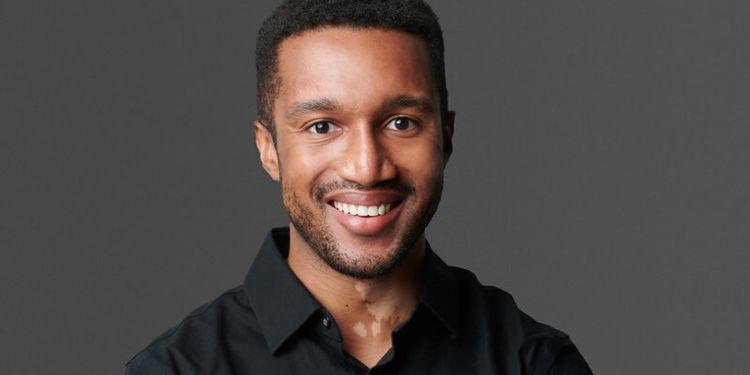Climate Stories Episode #15 – Hilton Augustine III - Finding and Funding Climate Technology Solutions
Episode 15 of Climate Stories focuses on recent HBS alumnus, Hilton Augustine III. A veteran of consulting, electric vehicle manufacturing and venture investing, this 2021 HBS MBA is searching for the best means of driving climate change – fast enough – to make a real dent in CO2 emissions.
“Climate technology has been my fascination since high school.” – Hilton Augustine III
Both of Hilton Augustine III’s (HBS MBA 2021) parents are engineers, and they encouraged his childhood habit of taking apart old electronics to learn what makes them tick. Green technologies - solar, batteries, motors - captured his imagination early on. “I’d spend weekends and summers sifting through old toys and electronics in the house to find the parts I needed to create something new, like a portable solar-powered phone charger,” he recalled with a smile.
Having spent the last few years as a venture investor, Hilton continues to use his education, experiences and passions to build clean technologies. “I was drawn to venture because I get most excited about the technologists developing novel solutions at the cutting edge. However, venture capital is only a piece of the puzzle. We invest relatively small amounts of capital into solutions that can be revolutionary, but may not be deployed for a decade or longer.”
As a millennial, he hopes that his generation can undo the CO2 damage to the environment fast enough to matter. “I think what we should be asking ourselves is how we all work together to tackle climate change, as the problem is too vast to be shouldered by any one generation.” He added: “Our institutions must adopt a sense of urgency as we are less than seven years away from the IPCC’s 2030 deadline to halve emissions. It’s important to note that the problem continues to compound until we get to net-zero or, better yet, net-negative emissions which we don’t expect to occur until around 2050.”
These days, Hilton is asking himself a big climate question: “What is the right role for me to play across these three dimensions:
- Technology: finding and supporting scientists and engineers to bring solutions out of the lab
- Capital: marshaling resources to deploy the solutions mature enough to make massive impact within the next 5-10 years
- Alignment: empowering public and private stakeholders to make both micro- and macro-level decisions today that will have net positive environmental and economic effects now and into the future”
At the May 2023 “Accelerating Climate Solutions” conference at HBS, Hilton found validation for the three dimensions that are shaping his thinking: “I, like several of the panelists, believe that the stickiest problems lie at the intersection of technology deployment, capital access, and policy acceleration. I plan to spend more time building bridges to my colleagues on the policy and movement building side.”
He added: “I left the conference feeling encouraged that there have been alumni and others around the world working on solutions for decades. As the world recognizes the time to act is now, we will be able to marshal additional talent and resources towards scaling these solutions. I want to find opportunities to fund companies that build on those foundations to accelerate the time to deployment.”
At Harvard College, Hilton started an energy club and set up a solar technology demonstration for Earth Day. He studied engineering and sought out “classes on energy policy, engineering and business” across the university. Upon graduation in 2013, Hilton noted a lack of job opportunities in renewable energy. So, he went into management consulting and then a software company, before landing at Tesla in 2017. The culture was challenging but “It was the most exciting clean energy company at the time.” His manager at Tesla was an HBS alum (who later became CFO), so it was a natural transition, he felt, to apply to the school.
Within a few months of arriving on campus, however, the Covid-19 pandemic hit. Hilton, nonetheless, found ways to make the HBS experience work for him, despite the disruptions. “Living way off campus in California, I stayed engaged through extracurriculars, including screening and judging 200 pitches of entrants for AASU’s Black Venture Competition.”
He also seized upon an independent project, collaborating to launch Nucleate Eco, an incubator of climate companies. The program facilitated “founder dating” between Harvard and MIT biotech PhDs and HBS MBAs, taught how to develop a pitch and business plan, and nurtured relationships with venture capitalists for funding opportunities. Hilton explained: “this was a unique way to get hands-on experience with climate technology startups and VCs.”
After graduation, Hilton’s experiences combined to lead him to Energy Impact Partners, where he perfected his skills as a venture investor. “I focused on early-stage startups that aim to displace or sequester a significant portion of global greenhouse gas (GHG) emissions. I utilized my engineering and business training to evaluate technologies that challenge the conventions of discovering, producing, and consuming the materials and resources that drive our everyday lives. This includes mining and refining precious metals and magnets, generating and storing electricity, and even producing fertilizer and managing cow manure (a material source of emissions!).”
Hilton continues to support climate founders as an independent sponsor. He’s carefully working “to define the niche that fits my skillsets and interests best.”
He remains optimistic about the future of venture investing in climate change, especially given the $783 billion in pump priming provided by the Biden administration’s Inflation Reduction Act. “I hope these initiatives are successful in both accelerating the green transition and revitalizing the American job market for folks of all socioeconomic statuses.” Hilton continued: “Early wins might help depolarize the national discourse on climate change and kickstart more investment into the transition.”
He thinks there are specific opportunities for his clients and the larger industry: “The proposed power plant emissions standards will create a $300 billion opportunity for carbon capture project developers to deploy carbon capture technology alongside natural gas plants. This allows the continued use of these flexible grid power sources without contributing to greenhouse gas emissions.”
But Hilton cautioned against excessive enthusiasm about a fully domestic electric vehicle supply chain in the short term, despite his experiences at Tesla: “The US does not have sufficient domestic capacity to produce all the battery materials critical to EV adoption. Mineral agreements with Japan and other friendly nations (South Korea, Canada, Australia) will allow us to continue building EVs as we invest in our own capacity to process these materials (e.g. portfolio company 6K Inc.)”
Despite the widespread and growing anti-ESG sentiment in Congress and in a majority of state legislatures, Hilton is confident the opposition will not succeed globally. “Anti-ESG is an American phenomenon,” he observed. “Investors from endowments or sovereign wealth funds expect an ESG lens. European investors are requiring it. Climate impacts pose large risks, and if you stick your head in the sand, you are not being a responsible fiduciary.”
Hilton has suggestions for additional steps HBS faculty, staff and alumni take to accelerate climate solutions. “As a complement to large conferences like Climate Week,” he said, “Harvard should use its convening power on the micro scale. I’d love to see local dinners and get-togethers of one or two dozen of us, small enough to get to know everyone in the room and find ways to pull on one another’s networks and expertise to get tactical.” For the 23-24 academic year, HBS BEI seems to have heeded his call, with a series of alumni gatherings across the globe, with plans for some on the specific topic of climate finance. Hopefully, that’s one step in the right direction.
About the Author

Jacqueline Adams (MBA 1978) has spent her career as a journalist, author, and convener. She and Bonita C. Stewart (MBA 1983) are co-authors of “A Blessing: Women of Color Teaming Up to Lead, Empower and Thrive” as well as a series of groundbreaking proprietary surveys, Women of Color in Business: Cross-Generational Survey©.

